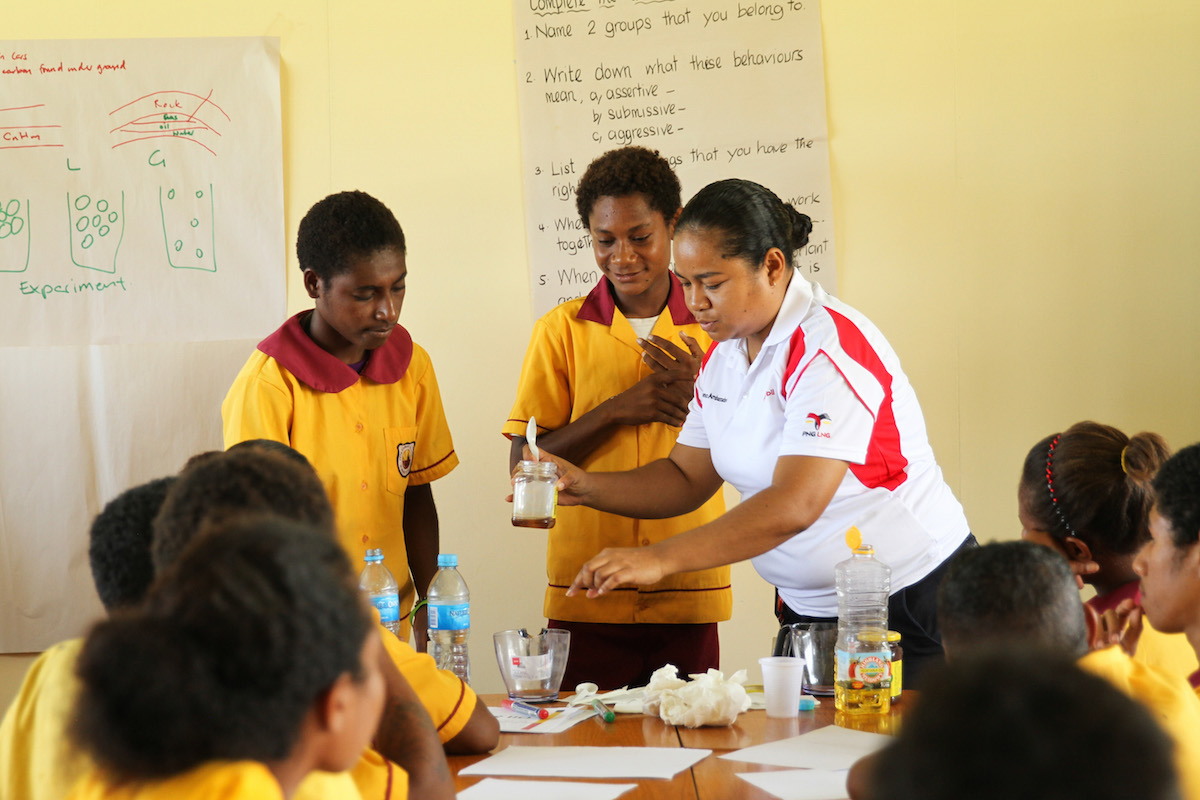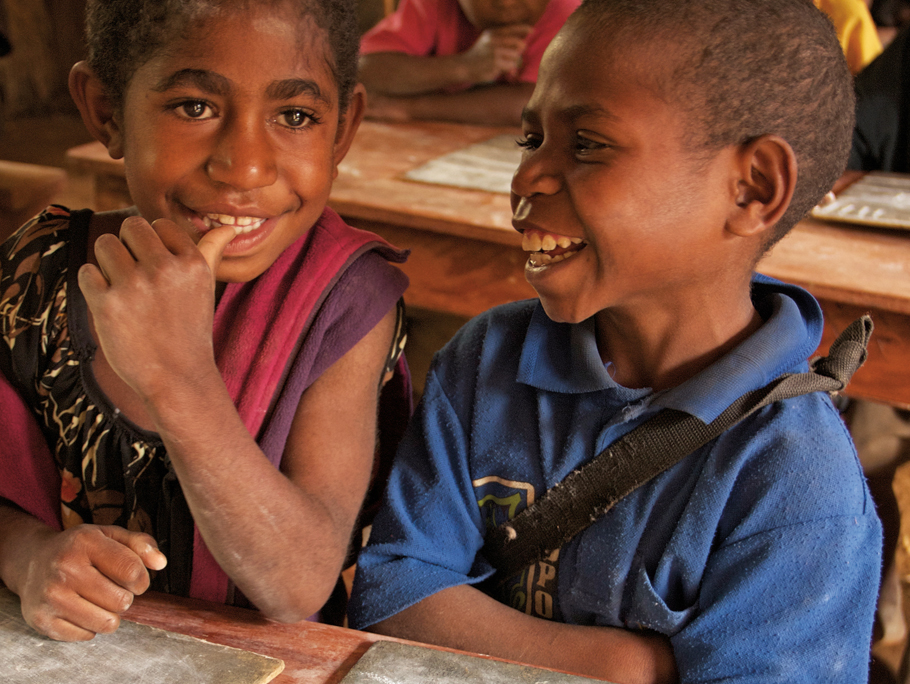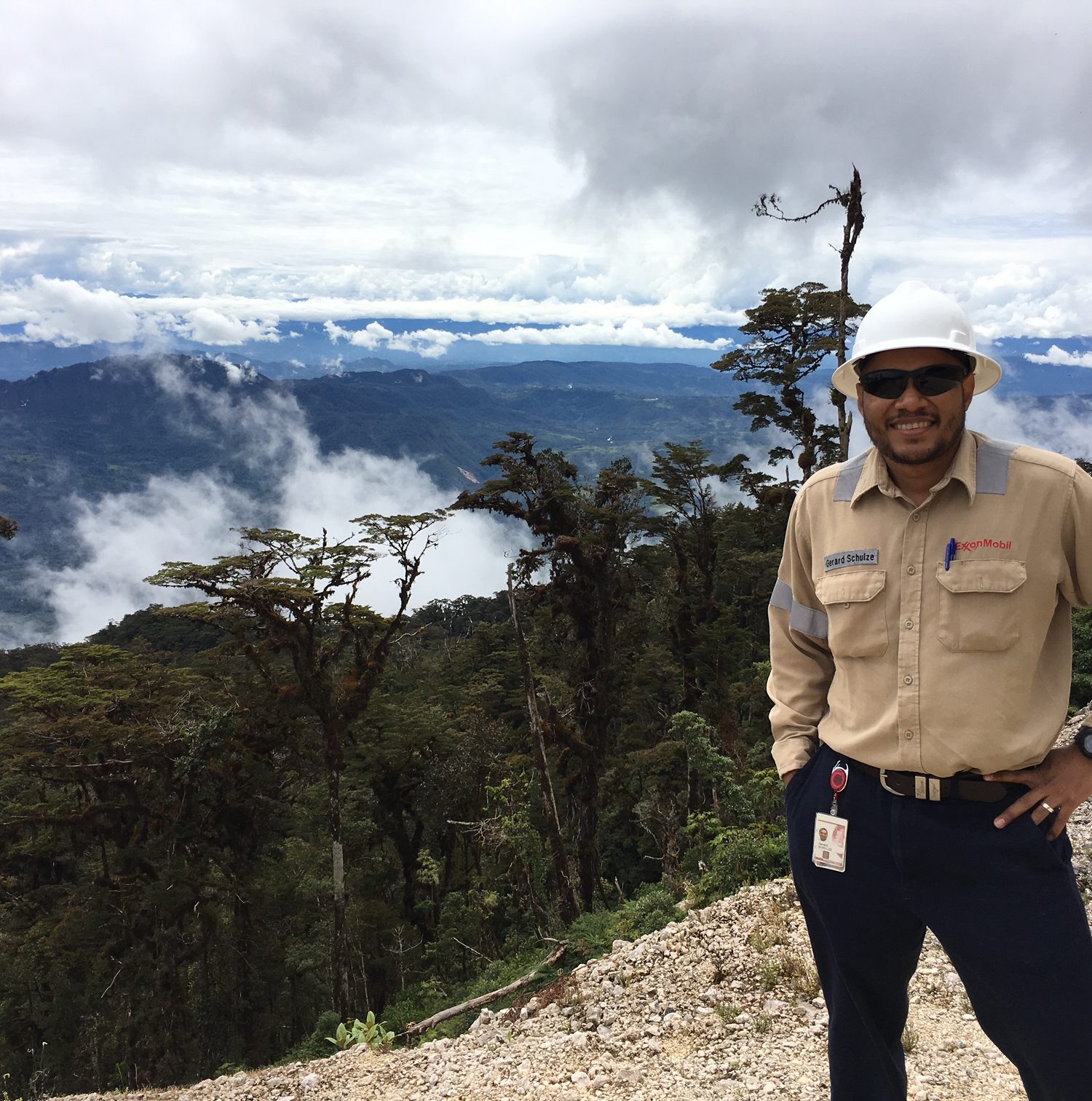Papua New Guinea is famous for both its dramatic natural landscapes and its staggeringly diverse collection of cultures. However, the pristine forests and towering mountains are also potent natural barriers that have isolated communities and in doing so created challenges for the nation’s human development. For example, according to the World Bank, 37 percent of the country’s 7 million people are illiterate, and in today’s world the inability to read can isolate an individual more than any mountain range or jungle.
To drive down the country’s illiteracy the government of Papua New Guinea has enlisted a wide variety of public and private entities, including ExxonMobil, the operator of Papua New Guinea Liquefied Natural Gas (PNG LNG). As one of the nation’s major employers, PNG LNG has a vested interest in bolstering the country’s literacy rate. Its support of the country’s push to increase literacy rates is a seed investment in developing the skills needed to grow the next generation of local workers for an expanding energy sector.
So far the company has already committed more than $6 million to build and maintain schools, provide scholarships and help teachers. The effort is comprehensive. As well as delivering class materials, including more than 6,000 books to 25 schools across five provinces, it also supports Buk bilong Pikinini, a local charity that oversees early childhood and after-school literacy programs.
As well as students, PNG LNG also finances leadership training for school administrators. It has also invested in sports infrastructure and recently financed the refurbishment of a double classroom at the Homa Paua Primary School in the country’s Hela Province. The effort is comprehensive and driven by a single goal: grow the country’s literacy rate.
For Papua New Guinea the full reward of a large investment such as PNG LNG is the local jobs it creates; a supportive education system is the catalyst that will help its people access these jobs.
Header image: Employee volunteer helping teachers to inspire students through science lessons.





